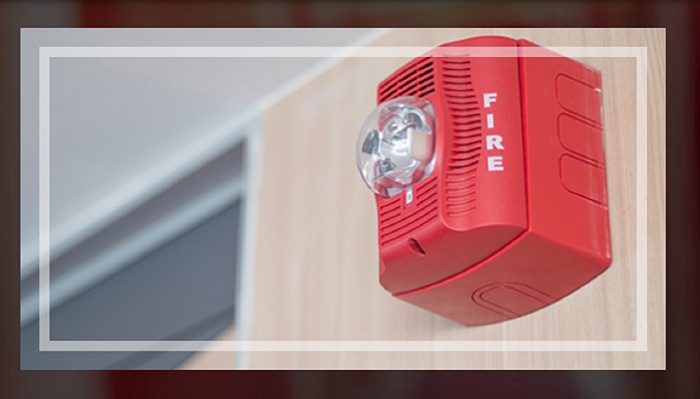Commercial spaces are extremely dynamic because they engage in a range of activities along with constant foot traffic. In this case, protecting humans and property remains a primary concern, which explains the importance of commercial fire alarm services as a vital element of corporate security.
In this in-depth guide, we’ll discuss the need for testing and inspecting commercial fire alarm systems, revealing essential practices that help keep these vital safety devices well-functional and efficient.
Why Do Testing and Inspection of Commercial Fire Alarm Matter?
Commercial Fire Alarm Services are indispensable in preventing disasters and saving lives. Constant testing and checking are essential in ensuring these mechanisms work efficiently when needed the most. This preventative measure not only complies with safety regulations but also allows spotting issues before they can grow into serious problems, saving false alarms and fast response in case of emergencies.
The Testing Process:
Initiating Device Tests:
- The smoke detectors, heat detectors, and other initiating devices should be regularly monitored to ensure they are in working condition to detect a fire at the early stages.
- Check that every device communicates efficiently with the integrated central monitoring systems.
Audible and Visual Signal Tests:
- Check test alarms and strobe lights to make sure that these are audible and visible in every part of the commercial area.
- Make sure the signals are in the appropriate decibel levels for successful notifications.
Control Panel Inspection:
- Inspect the control panel for any indication of damage or malfunction.
- Ensure the stability of the power supply and battery backup systems.
Communication Tests:
- Verify that the lines of communication for the fire alarm system with monitoring stations are functional.
- Test the system’s ability to send the alerts to the emergency responders.
System Integration Tests:
- In the case of its integration with other security systems, like access control or surveillance cameras, call professional fire alarm services for a successful integration.
The Inspection Process:
Physical Inspection:
- Conduct a visual inspection of all components and features of the fire alarm system to check for wear, damage, or evidence of tampering.
- Make sure that nothing is interfering with the initialization devices.
Documentation Review:
- Check documentation, such as maintenance logs and guides, to ensure that the system has been updated as per the standards.
User Training Assessment:
- Make sure that the staff is well-trained in responding to fire alarms and emergencies.
Compliance Check:
- Ensure that the fire alarm system complies with the local, state, and federal codes and standards.
Advantages of Routine Maintenance of Commercial Fire Alarm Systems
Commercial fire alarm systems need to be well maintained for them to be effective and safe to use.
Reliability:
Routine maintenance makes sure that all parts of the fire alarm, including the detector and control panels, function correctly. This reliability becomes a crucial component during emergencies, as the reaction to potential threats is almost immediate and accurate.
Early Detection of Issues:
Critical situations can be prevented if problems with the system are identified and corrected before they occur. Planned maintenance allows to identification of latent problems or defects before their occurrence.
Early problem detection and prompt remediation prevent system failure or false alarms and ensure the effectiveness of the system.
Prevention of False Alarms
One of the most important advantages of periodic testing is a reduced number of ‘false alarms’ that can interfere with commercial activities and also impose unnecessary burdens on the emergency services.
Regular maintenance is the only way that the technician can ensure that the alarm triggers are set properly to prevent false alarms and minimize the amount of disturbances.
Extended Equipment Lifespan:
Just like most technological devices, fire alarm systems have a limited shelf life. The regular practice of maintenance, such as cleaning, testing, and replacement of components when necessary, can prolong the lifespan of the system, and the period of reliable operation can be significantly prolonged.
Compliance with Regulations:
In most countries, fire alarm systems are installed and maintained with strict laws. These regulations are adhered to by regular maintenance, thus limiting liability and ensuring a safe environment for the occupants.
Cost Savings:
In most cases, proactive repair is cheaper than reactive maintenance. By early detection, simple problems can be addressed, which eliminates more serious and costly problems in the future, and companies save money in the long run.
Conclusion:
Commercial fire alarm services represent an essential investment in the safety and security of all individuals and the infrastructure of a commercial building. However, there is a statutory requirement for periodic testing and inspection, but such practice is also necessary to maintain the efficacy and integrity of these systems.
Many leading companies, such as Fireserv, can use the large-scope testing & inspection protocol to prepare for all commercial fire alarm systems in hazardous conditions. Such confidence and security from tragic scenarios are guaranteed.


No comments yet